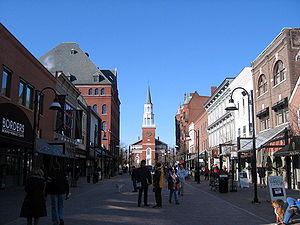Dave Gram of the Associated Press takes a rather myopic look at municipal fiber operations, noting that the now 70 such operations now make up about 3% of the U.S. fiber to the home business — the remaining majority of course owned by Verizon’s FiOS service. Like any business, some of these operations succeed and some fail — some are based on sound financial logic and some aren’t. The AP decides to specifically focus on the failures of Burlington, Vermont‘s Burlington Telecom — whose $50 million in debt and looming Federal investigation the AP declares is a “cautionary tale” for cities interested in wiring themselves for broadband:
The saga may be a cautionary tale for cities around the country that are fed up with waiting for their onramp to the information superhighway and contemplating getting into the telecom business themselves. . .Burlington would seem a likely place for residents to come down in favor of a public enterprise over private ones. The city of just under 40,000 is home to the University of Vermont and is famous for left-leaning politics. Sen. Bernie Sanders, the only self-described small-s socialist in the U.S. Senate, is its former mayor.
The article seems to work hard to portray municipal broadband as a dangerous endeavor supported mostly by fringe partisans, ignoring the fact that this isn’t really a partisan issue. Largely Conservative cities like Lafayette, Louisiana have also pursued these kinds of networks, and they’re driven by a lack of substantive competition in most markets — something the Associated Press completely fails to mention. Towns like Wilson, North Carolina and Lafayette wouldn’t be getting into the broadband business if these towns were happy with the service they were receiving from the private market.
Article Continued on BroadbandReports.com…
Related articles
- Vt. city stumbles in effort to do telecom itself (sfgate.com)
- The price of muni broadband? Eternal war with Time Warner Cable (arstechnica.com)






